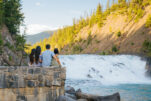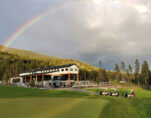No Nonsense Health: Is it now safe to visit the dentist?
By Gifford Jones and Diana Gifford Jones on July 24, 2020.
Visiting the dentist is rarely a high priority, even in the best of times. We can always find reasons for delay. But what level of coronavirus threat should justify more waiting? There is increasing concern that all these closures of “non-essential” healthcare service providers may, in some cases, be doing more harm than good.  There’s serious concern regarding delays in some cancer treatments. And some heart attack victims have also been delayed in getting help until it is too late. However, it’s understandable that non-emergency dental care has been on hold. As time goes by though, we must heed the importance of a regular dental cleaning and check-up. And many will need more involved dental work. So as dental offices reopen, how can you keep a safe distance when your dentist is drilling a tooth or doing a routine checkup? The dentist would have to be a magician to do any procedure while you’re wearing facial protection. Certainly the dentist can don layers of protection. But are there any steps you can take to avoid the risks to you? Michele Neuburger, a dental officer for the Centers for Disease Control and Prevention, Division of Oral Health, points out what we already know. It is impossible for dentists to use drills, ultrasonic scalers and air-water syringes without creating a visible spray. This spray contains water, saliva, blood, and microorganisms. Large droplets in the spray can easily land on anyone in the room. The spray can also include small aerosolized droplets of coronavirus if the patient is infected with the virus. The pertinent question is how long does a virus thrive in an operating area? Authorities believe droplets carrying the coronavirus can last for three hours and can spread to dental staff or other patients unless stringent precautions are instituted in dental offices. Working in a confined area makes it difficult to keep a sterile atmosphere. But the World Health Organization reports there have been no confirmed cases of coronavirus infection transmitted in a dental office. So what’s the answer for those who are concerned? Despite WHO reassurances, no dental office can guarantee safety, just as no surgeon who operates under very sterile conditions can guarantee a wound infection will not happen. For the moment, we will all have to work together to ensure as safe an environment as possible. This means more temperature checks, questionnaires and getting used to facial masks. While there’s no conclusive evidence that preprocedural mouth rinses reduce the transmission of viruses in dental settings, some dentists may ask patients to use an antimicrobial product. Research shows this may reduce the viral load or oral microorganism in aerosols and spatter during dental procedures. Remember, improving immunity is another way to fight off a threatening infection. Ensuring your natural defenses are at their strongest is a good strategy for everyday living during these COVID times. Loading up on vitamin C is a safe option. On a daily basis, add these supplements to a healthy diet and a good sleep: 1,000 mg taken three times a day, 3,000 international units of vitamin D, 400 mg of magnesium, 200 mg of zinc, and 100 micrograms of selenium. Especially when visiting the dentist, make sure you are fueled up with these well-established natural components of a robust immune response. And here’s a new one. Some dental offices are asking patients on arrival to remain in their car until the dentist is ready. After all, the longer you wait in a dental office the greater the chance of infection. Yes, we have entered a whole new world. Sign-up at http://www.docgiff.com to receive our weekly e-newsletter. For comments, contact-us@docgiff.com. 14-13




